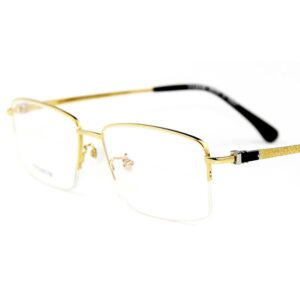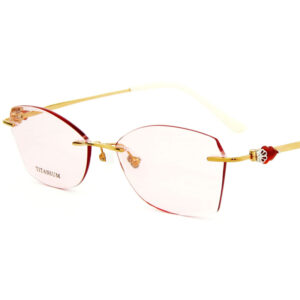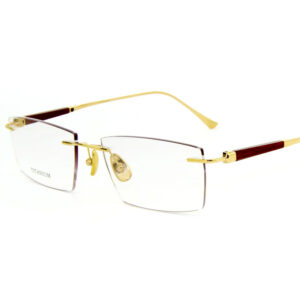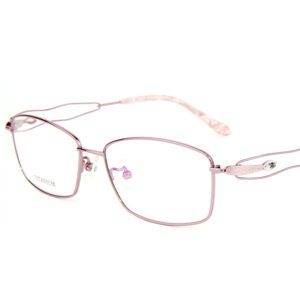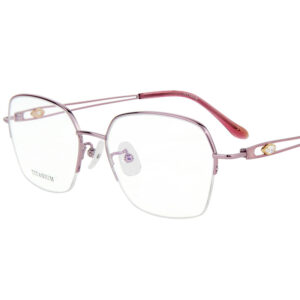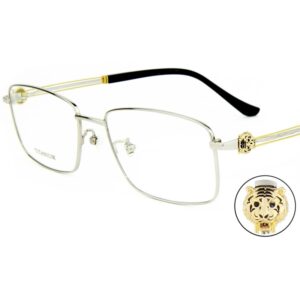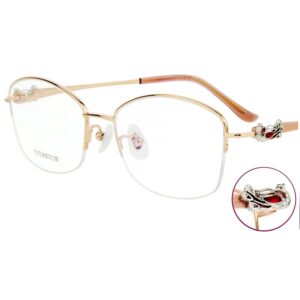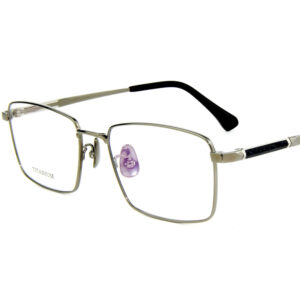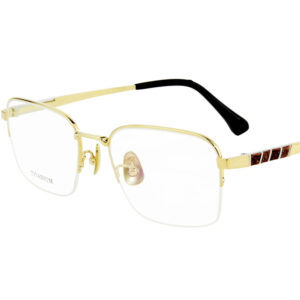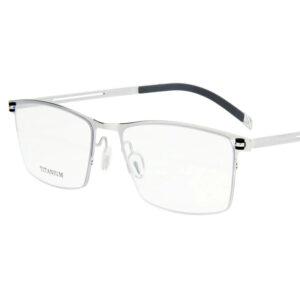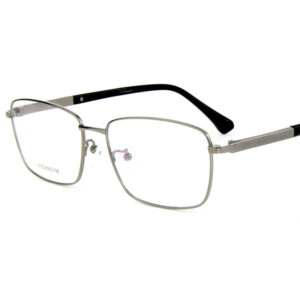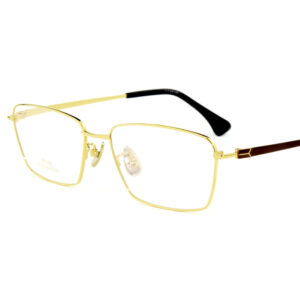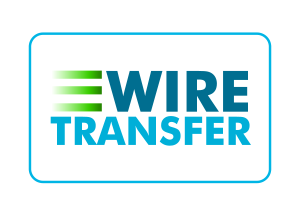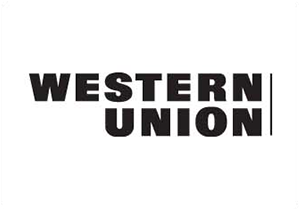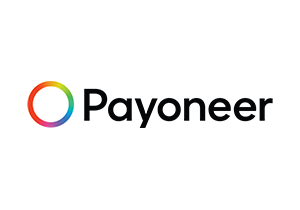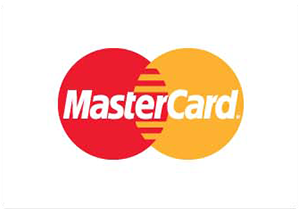Importing sunglasses from China to Nigeria can open up incredible opportunities for your business. With China being a global hub for high-quality yet affordable products, it’s no wonder many entrepreneurs look to this market. But, let’s face it—getting started can feel overwhelming. How do you find the right suppliers? What about shipping and customs? Don’t worry—this guide has everything you need to make the process simple and stress-free.
To import sunglasses from China to Nigeria, follow these steps: Start by finding reliable suppliers on trusted platforms like Alibaba or through trade fairs. Verify their credentials and the quality of their products. Arrange for shipping and work with a freight forwarder to handle customs clearance. Ensure all Nigerian import regulations are met to avoid any delays or penalties. Finally, use secure payment methods like escrow or Letters of Credit to protect your investment. With these steps, you can successfully bring sunglasses from China to Nigeria with minimal hassle.
Feeling more confident? Great! But there’s still more to explore. In the sections below, we’ll break down each step in detail, so you can tackle the entire importing process like a pro. Let’s get started!
Table of Content
Chapter One: How to Find the Best Sunglass Suppliers From China?
- Step 1: Find the Best Source for Importing Eyewear from China
- Step 2: Communicating with Manufacturers
- Step 3: Visit Eyewear Manufacturers (If possible)
- Step 4: Considerations Before Importing Eyewear
- Step 5: Negotiating Prices with Eyewear Manufacturers
- Step 6: Placing Your Order with the Eyewear Manufacturer
- Step 7: Making the Deposit
- Step 8: Inspecting the Products
- Step 9: Final Payment
Chapter Two: How to Shipping Sunglass Products From China To Nigeria?
Commen Knowledge: Shipping from China to Nigeria | Sea, Air & Rail Freight Rates
- December 2024 Shipping Update: From China to Nigeria
- Freight Shipping Cost from China to Nigeria for December 2024
- Understanding Import Tax and Duties
- Shipping from China to Nigeria Transit Time
- Door to Door Shipping from China to Nigeria
- Sea Freight from China to Nigeria (December 2024)
- Air Freight from China to Nigeria (December 2024)
- Express Shipping from China to Nigeria
- Key Ports in China and Nigeria for Shipping
- Freight Forwarders from China to Nigeria
Chapter Three: How to Ship Sunglasses from China to Nigeria: A Step-by-Step Guide
- Choosing the Right Shipping Method
- Finding Reliable Suppliers and Freight Forwarders
- Preparing Necessary Documents
- Arranging Product Packaging and Labeling
- Understanding and Complying with Turkey Customs and Import Regulations
- Tracking and Managing Shipment Status
- Post-Arrival Inspection and Final Delivery
- Reviewing and Optimizing the Shipping Process
Conclusion
Chapter One: How to Find the Best Sunglass Suppliers From China?
China has rapidly become a manufacturing powerhouse, producing a significant portion of the world’s consumer goods. For many companies, importing from China has proven to be a profitable global sourcing strategy. This is especially true for eyewear buyers and distributors looking to capitalize on high-quality products at competitive prices. If you’re considering importing eyewear from China, you’ve made a smart choice.
Out of the 195 countries globally, 81 countries import various products from China—this is a significant market. So, whether you are an eyewear retailer, distributor, or brand owner, importing eyewear from China can be a lucrative opportunity.
Eyewear products from China, such as sunglasses, prescription glasses, and sports goggles, are known for their cost-effectiveness, quality, and wide variety of styles. They protect eyes from various elements like:
- Excessive sunlight
- UV radiation
- Dust and debris
- Impact during sports
- Environmental hazards
- And more.
As you can see, the effort you put into importing eyewear from China is well worth it. However, this process is not without its challenges, particularly for newcomers. Importing can be time-consuming, complex, and costly if not handled correctly.
Longer shipping times, regulatory fees, rising or fluctuating distribution costs, and unforeseen delays can all erode expected profits.
Nevertheless, by following the right guide, you can successfully import eyewear from China and benefit from it. That’s where we come in. We support you every step of the way. Below is our step-by-step guide on how to import eyewear from China.
Let’s get started.
Step 1: Find the Best Source for Importing Eyewear from China
1. Using Google to Find Manufacturers
The first place most people turn to for finding answers is Google. Similarly, Google will provide a list of the most relevant results for your search.
Google has recently updated its page-ranking algorithms, which helps users distinguish between reliable websites and malicious ones.
You must narrow down the list of manufacturers to those that best suit your needs from the results you find. Afterward, you’ll contact them to determine which manufacturer you want to work with.
A major drawback of using Google to find manufacturers is that you might not find a single manufacturer that produces all the different types of eyewear you need. This could force you to source products from multiple manufacturers, which can be both expensive and time-consuming.
2. Using Alibaba to Find Manufacturers
Alibaba is one of the largest e-commerce platforms in China and globally. Thanks to its popularity and massive user base, you can quickly find various eyewear manufacturers offering a wide range of products.
However, as an open marketplace, Alibaba can also be a breeding ground for scammers. Additionally, Alibaba’s ranking system can be manipulated by companies that pay for higher rankings but may not offer quality products.
Therefore, be extra cautious when using Alibaba to find manufacturers.
3. Attending Trade Shows to Find Manufacturers
International trade shows and exhibitions are excellent opportunities for buyers and manufacturers to establish connections and secure reliable partnerships. Attending these events allows you to see and purchase samples of the products you’re interested in.
This helps you avoid the disappointment of importing products you’ve never seen before. Exhibitions also offer the potential to build a strong business network, as you can engage in face-to-face interactions with sellers and buyers.
Unfortunately, trade shows are not held frequently, but if you are willing to travel to other countries to attend these events, it can be worth it. You’ll gain valuable knowledge to take informed steps in the future.
If attending in person is not possible, make sure to leverage these opportunities when they appear in your local area.
Step 2: Communicating with Manufacturers
Avoid These Mistakes When Contacting Manufacturers
Manufacturers receive numerous messages and emails daily from potential clients. To avoid being overlooked, keep your emails short and to the point. Lengthy emails may not get the attention you desire. Instead, follow up with detailed information after receiving a response.
Requesting too little may lead manufacturers not to take you seriously. If unsure, consider calling the company to clarify your needs.
Step 3: Visit Eyewear Manufacturers
If you want to secure high-quality eyewear, there’s no substitute for an on-site visit. Visiting the manufacturer allows you to meet the team, understand the production process, and inspect the facilities.
1. Visit the Product Showroom
When you visit a manufacturer, you’ll have the opportunity to tour their showroom, where they showcase their various eyewear products in an attractive manner. This visit will allow you to assess the quality, design, and variety of products available.
2. Visit the Production Line
By touring the production line, you can observe the entire manufacturing process, from raw material handling to the final assembly. This insight is invaluable for evaluating the manufacturer’s capabilities and quality control measures.
3. Benefits of On-Site Visits
Visiting the manufacturing site can significantly benefit your business relationship. It shows the manufacturer that you are serious about purchasing their products, which can lead to better pricing and service.
Building a strong relationship with the manufacturer can result in better communication, negotiation, and long-term cooperation. You’ll also gain knowledge about the materials and techniques used, expanding your expertise in the eyewear industry.
Step 4: Considerations Before Importing Eyewear
Before purchasing and importing eyewear, there are several crucial factors you need to consider to ensure the products meet your requirements and comply with your market’s standards:
1. Materials: High-quality eyewear products typically use materials like acetate, TR90, and titanium. Acetate is popular for its durability and flexibility, while TR90 is known for its lightweight and impact resistance. Titanium is valued for its strength, corrosion resistance, and hypoallergenic properties. Ensure that the eyewear materials meet the quality and safety standards of your target market.
2. Size: Eyewear size can vary depending on the style and target demographic. A good supplier should offer customizable sizing options to cater to different face shapes and sizes. This includes variations in frame width, bridge width, and temple length. Custom sizing ensures that the eyewear fits comfortably for the end-user.
3. Structure/Construction: The construction of eyewear is critical to its durability and comfort. High-quality eyewear is often constructed using multi-layer lamination for acetate frames or injection molding for plastic frames. The hinges and screws should also be of high quality, ensuring longevity and ease of use.
4. Color: Eyewear is available in various colors and finishes, such as matte, glossy, or metallic. Popular choices include classic colors like black, tortoiseshell, and clear frames. Custom color options can also be offered to align with current fashion trends or specific branding requirements.
5. Weight: The weight of eyewear can significantly affect comfort, especially for prolonged wear. Lightweight materials like TR90 and titanium are often preferred for their comfort, making them ideal for prescription glasses and sports eyewear.
6. Accessories:
- Lens Cleaning Cloths: Essential for maintaining lens clarity without scratching.
- Protective Cases: Helps to protect eyewear from damage during storage or transport.
- Nose Pads: Silicone or rubber nose pads can be customized for comfort and durability.
- Hinges and Screws: High-quality components are necessary for durability and ease of maintenance.
- Coatings: Anti-reflective, anti-scratch, and UV protective coatings are common and can enhance the functionality and lifespan of the eyewear.
When importing eyewear, these factors will help ensure that the products meet both your quality expectations and the needs of your customers. Make sure to communicate these requirements clearly with your manufacturer to avoid any discrepancies during production.
Step 5: Negotiating Prices with Eyewear Manufacturers
Negotiating prices is a crucial step in the process of importing eyewear. The goal is to create a win-win situation for both you and the manufacturer.
Here are some strategies to ensure successful negotiations:
- Be Prepared with Detailed Negotiation Data: Before entering negotiations, gather all the relevant data, including market prices, production costs, and your desired profit margins. When manufacturers see that you are well-prepared and serious about purchasing, they will be more inclined to offer competitive prices to secure your business.
2.Request Pricing Based on Quantity Tiers: As with most products, purchasing eyewear in bulk often reduces the price per unit. Ask the manufacturer for a breakdown of prices based on different order quantities. This allows you to evaluate how much you can save with larger orders and decide on the best purchase quantity for your budget and inventory needs.
3.Quality vs. Price: Keep in mind that higher quality often comes at a higher price. While it’s tempting to push for the lowest possible cost, ensure that the quality of the eyewear meets your standards. The goal is to find the best balance between cost and quality.
4.Understand the Manufacturer’s Costs: Gaining insight into the manufacturer’s costs, including labor, materials, and overhead, can help you assess whether their pricing is reasonable. This knowledge also provides leverage during negotiations, as you can discuss any price discrepancies with a better understanding of their cost structure.
5.Build a Good Relationship: Establishing yourself as a reliable customer will make negotiations smoother. If you’re seen as a long-term partner rather than a one-time buyer, manufacturers may be more willing to offer better terms and prices.
6.Avoid Endless Requests for Samples: Constantly requesting samples without committing to an order can strain your relationship with the manufacturer. Be transparent in your communications and avoid creating the impression that you’re just shopping around without serious intent.
7.Don’t Overdo Haggling: While negotiating for the best price is important, excessively haggling over every cent can be counterproductive. Both you and the manufacturer are in business to maximize profits, so aim for a fair agreement that benefits both parties.
8.Consider Hiring a Representative: If visiting the manufacturer in person isn’t feasible, consider hiring a representative in China to assist with negotiations. This person can provide local insights, handle communications, and ensure that your interests are well-represented.
If hiring a representative is not an option, phone calls and email exchanges can also be effective, as long as they are clear and professional.
Step 6: Placing Your Order with the Eyewear Manufacturer
Once negotiations are successful, it’s time to place your order.
Sample Orders vs. Bulk Orders
Sample Orders: A sample order is a small initial order of one or more products that allows you to evaluate the quality and suitability before committing to a larger purchase. This step is especially useful if you haven’t yet visited the manufacturer in person. Sample orders carry lower risk and can save you from significant losses if the product doesn’t meet your expectations.
When discussing sample orders with the manufacturer, your email should include:
A clear statement that you are requesting a sample order.
The specific products you wish to test.
Any customizations you want for the samples. Be detailed and precise.
The quantity of each item you wish to order.
Your shipping address for sample delivery.
Bulk Orders: If you have visited the manufacturer and are confident in their products, placing a bulk order may be the best choice. Bulk orders are cost-effective and demonstrate your commitment to a long-term partnership, potentially leading to better terms and future negotiations.
With these steps, you can effectively negotiate prices and place orders, ensuring that you get the best value for your eyewear imports.
Step 7: Making the Deposit
After placing your order with the eyewear manufacturer, the next step is payment. In most cases, you will need to pay a deposit, typically around 30% of the total order amount, before the manufacturer begins production.
The manufacturer will provide you with their bank details for the transfer. If you’ve conducted an on-site visit, this is an excellent opportunity to negotiate and establish a clear payment schedule that suits both parties.
Once the initial deposit is paid, the manufacturing process for your eyewear products will commence.
Step 8: Inspecting the Products
Inspecting the products is a crucial step to ensure that the eyewear meets your standards and specifications. You should dedicate significant attention to this phase to avoid any potential issues with quality.
Inspect the eyewear for any defects such as lens scratches, misaligned frames, or loose hinges. If you can’t be physically present for the inspection, request that the manufacturer send detailed photos and videos of the products. This visual confirmation can help you verify that everything is in order before proceeding further.
A reputable manufacturer will have a compensation strategy in place for handling any defects or issues that arise after delivery.
Step 9: Final Payment
Once the inspection is complete and you are satisfied with the quality, it’s time to make the final payment. This usually covers the remaining 70% of the total order amount.
In some cases, after successful negotiations, you might agree to pay 50% before delivery and the remaining 20% after the products have been delivered. Once the final payment is made, the delivery process will begin, and your eyewear products will be on their way to you.
Chapter Two: How to Shipping Sunglass from China to Nigeria?
How have China and Nigeria forged a trade relationship that benefits both nations? This brief exploration highlights the economic growth and development spurred by their collaboration, emphasizing the pivotal role of e-commerce platforms like Alibaba. These platforms have revolutionized access to global markets, simplifying logistics and customs processes, and showcasing the power of international cooperation in driving prosperity across borders.
December 2024 Shipping Update: From China to Nigeria
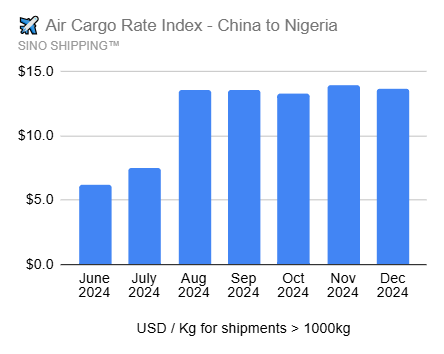
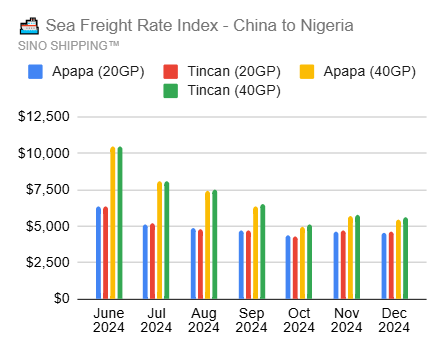
- Costs: Shipping costs have increased. Regular post costs $10-$20 per kilogram. Express shipping costs $30-$50 per kilogram. Air freight is $13,680 per ton with a transit time of 6-8 days. Sea freight is $4,550-$4,600 per 20-foot container and $5,500-$5,600 per 40-foot container, with a transit time of 50-55 days.
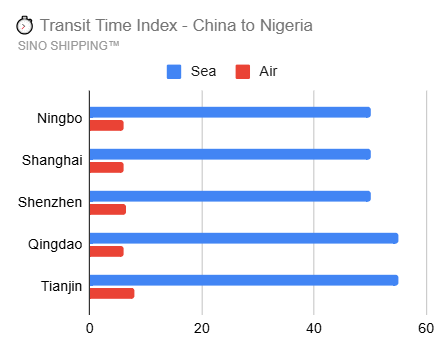
- Delivery Times: Regular post takes 2-3 weeks. Express shipping typically takes 5-7 days. Air freight takes 6-8 days. Sea freight takes 50-55 days, with possible delays due to port congestion in Nigeria during the holiday season.
- Customs: Efficient customs processing is crucial to avoid delays. Ensure all paperwork is accurately completed. Nigeria’s customs regulations require precise documentation, especially during peak shipping periods like December, to prevent hold-ups.
- Global Events Impacting Nigeria: Geopolitical tensions, such as the Red Sea crisis, continue to impact global shipping. This has led to increased congestion and equipment shortages, affecting schedules and rates. Seasonal demand during December has further contributed to elevated shipping costs.
- Outlook for Nigeria: Elevated rates and potential delays are expected through December. While demand has stabilized compared to pandemic levels, logistical challenges, including global equipment shortages and port congestion, are likely to keep rates high.
- Summary for Nigerian Shippers: Stay informed about fluctuating shipping rates and potential delays. Ensure compliance with Nigeria’s customs regulations by completing all necessary paperwork accurately. Effective communication with logistics partners is essential to mitigate the impact of global and seasonal challenges. Be prepared for potential disruptions during the holiday season.
Freight Shipping Cost from China to Nigeria for December 2024
Overview of Costs by Shipping Mode
| Shipping Mode | Price Range | Best For |
|---|---|---|
| LCL (Less than Container Load) | $30 to $60 per cubic meter | Small shipments not filling a full container |
| FCL (Full Container Load) – 20ft Container | $4,550 (Apapa) – $4,600 (Tincan) | Large shipments requiring an entire container |
| FCL (Full Container Load) – 40ft Container | $5,500 (Apapa) – $5,600 (Tincan) | Large shipments requiring an entire container |
| Express Shipping | $5 to $10 per kilogram | Urgent small packages |
| Air Freight | $13.68 per kilogram | High-value, time-sensitive goods |
Estimating Shipping Costs and Effective Budgeting
To budget effectively for shipping from China to Nigeria, consider these factors:
- Fuel Surcharges: Can vary monthly, impacting overall costs.
- Customs Duties and Taxes: Depends on the goods’ classification. For electronics, expect around 5% to 20% of the cargo value.
- Other Fees: Include handling, documentation, and port fees.
Practical Tips:
- Utilize online calculators for preliminary estimates.
- Always account for total landed cost (TLC) for accurate budgeting.
- Consider seasonal fluctuations and exchange rate changes.
Understanding Import Tax and Duties
Impact of Import Taxes on Overall Shipping Costs
Did you know that import taxes and duties can drastically alter the cost of shipping goods from China to Nigeria? It’s not just about the shipping fee; the real game changer lies in the taxes applied upon entry. VAT and customs duties are the main players, significantly impacting the final price you pay. These charges are calculated based on the value of the goods, their classification, and the shipping terms used.
| Product Category | HS Code | Customs Duty (%) | VAT (%) | Additional Notes |
|---|---|---|---|---|
| Electronics | 85xxxx | 5-20 | 7.5 | May vary based on specific items |
| Clothing | 62xxxx | 12-20 | 7.5 | Depending on material and use |
| Machinery | 84xxxx | 5-10 | 7.5 | Includes industrial machinery |
| Agricultural Products | 02xxxx | 0-10 | 7.5 | Some items may have exemptions |
| Automotive Parts | 87xxxx | 10-20 | 7.5 | Depends on the part and vehicle type |
Strategies to Mitigate Tax Impacts
- Understand the tax rates: Familiarize yourself with Nigeria’s tariff schedule.
- Proper classification: Ensure goods are correctly classified under the HS code.
- Consider shipping terms: Terms like DDP (Delivered Duty Paid) can influence who bears the tax burden.
Navigating Legal Compliance in International Shipping
Tips for streamlining the customs clearance process include:
- Documentation: Keep a meticulous record of all shipping documents, including commercial invoices and packing lists.
- Regulatory knowledge: Stay updated on the latest import regulations and changes in tax rates.
- Expert assistance: Consider partnering with experienced freight forwarders or customs brokers who understand the intricacies of Nigerian customs regulations.
Shipping from China to Nigeria Transit Time
Comparison of Transit Times Across Shipping Modes
| Shipping Mode | Transit Time | Notes |
|---|---|---|
| Sea Freight (LCL & FCL) | 30 to 45 days | LCL might be slower due to consolidation and deconsolidation processes. |
| Air Freight | 5 to 10 days | Faster option for urgent shipments. |
| Express Shipping | 3 to 5 days | Ideal for time-sensitive deliveries. |
Factors Affecting Transit Times and Mitigation Strategies
Several factors can influence the transit time of your shipment from China to Nigeria, potentially leading to delays. Understanding these factors is key to planning and ensuring timely delivery.
- Weather Conditions: Severe weather can delay sea and air freight.
- Port Congestion: Busy ports can slow down the processing of shipments.
- Customs Delays: Variances in documentation can hold up goods at customs.
- Logistics Efficiency: The overall efficiency of your logistics chain, including the reliability of your freight forwarder.
To mitigate these risks:
- Choose the Right Shipping Mode: Based on your timing needs and the type of goods.
- Work with Reliable Freight Forwarders: Who have experience and can navigate potential delays.
- Understand Customs Requirements: Ensure all documentation is accurate and complete to avoid unnecessary hold-ups.
Door to Door Shipping from China to Nigeria
Advantages of Door-to-Door Services
Door-to-door shipping services streamline the logistics of transporting goods from China to Nigeria, providing a hassle-free experience for businesses. This service covers all logistics processes, from pickup at the supplier’s location in China to delivery at the recipient’s doorstep in Nigeria. The key advantages include:
- Simplified Logistics: Eliminates the need for businesses to coordinate multiple logistics providers, reducing complexity.
- Reduced Handling of Goods: Minimizes the risk of damage or loss as goods are handled less frequently.
- Lower Overall Shipping Costs: Potentially reduces expenses related to warehousing, handling, and intermediate transportation.
Choosing the Right Door-to-Door Service
Selecting the right door-to-door service provider is crucial for ensuring the smooth and efficient shipping of goods from China to Nigeria. When choosing a provider, consider the following factors:
- Reliability: Look for providers with positive reviews and a track record of timely deliveries.
- Cost: Compare quotes from different providers to find the most cost-effective option.
- Service Coverage: Ensure the provider can handle shipments from your specific location in China to the desired destination in Nigeria.
- Expertise in Customs and Regulatory Requirements: Choose a provider with experience in navigating the customs processes in both China and Nigeria to avoid delays.
Sea Freight from China to Nigeria (December 2024)
Benefits of LCL and FCL Shipping
Sea freight offers two primary shipping methods: Less than Container Load (LCL) and Full Container Load (FCL), each catering to different shipping needs from China to Nigeria.
| Shipping Option | Price Range/Cost | Transit Time | Best For |
|---|---|---|---|
| LCL Shipping | $30 to $60 per cubic meter | 50 to 55 days | Smaller shipments that don’t require the space of an entire container. Offers flexibility and cost savings for lower-volume shipments. |
| FCL Shipping – 20ft Container | $4,550 to $4,600 | 50 to 55 days | Larger shipments where you can fill a whole container. Provides security, privacy, and often a more cost-effective solution per unit shipped. |
| FCL Shipping – 40ft Container | $5,500 to $5,600 | 50 to 55 days | Larger shipments where you can fill a whole container. Provides security, privacy, and often a more cost-effective solution per unit shipped. |
Selecting a Sea Freight Forwarder and Top Shipping Routes
The choice of sea freight forwarder is crucial for ensuring efficient, timely, and cost-effective delivery from China to Nigeria. Factors to consider include:
- Industry Reputation: Seek out forwarders with positive testimonials and a track record of successful shipments.
- Service Offerings: Ensure they provide comprehensive services, including customs clearance and door-to-door delivery if needed.
- Expertise: Knowledge in handling the specific type of goods you’re shipping is essential.
- Route Network: Forwarders with a strong presence in your shipping route can offer better rates and more reliable service.
Top Shipping Routes:
- From Shanghai to Lagos or Shenzhen to Lagos, with variations in cost and transit time based on the forwarder’s network and the specific service chosen. The choice of port in China and entry port in Nigeria can significantly affect both the cost and transit time of your shipment.
Air Freight from China to Nigeria (December 2024)
Advantages and Considerations of Air Freight
| Feature | Detail |
|---|---|
| Speed and Reliability | Significantly faster transit times compared to sea freight |
| Transit Time | 6 to 8 days from China to Nigeria |
| Cost Estimate | $13.68 per kilogram for shipments over 1000 kg |
| Best For | Urgent or high-value goods |
Choosing the Right Air Freight Forwarder
- Criteria: Focus on network reach, customs handling expertise, and competitive pricing.
- Transit Times: Confirm the forwarder’s average transit times and their ability to meet your delivery schedule.
- Total Cost: Request a comprehensive quote detailing all costs, including fuel surcharges and customs fees, to avoid surprises.
Express Shipping from China to Nigeria
Benefits and Use Cases for Express Shipping
Opting for express shipping when sending goods from China to Nigeria can be a game-changer for businesses needing quick delivery times. This shipping method stands out for its ability to expedite transit significantly, making it the go-to choice for time-sensitive shipments, last-minute orders, and high-value products. The key benefits include:
- Faster Delivery: Express shipping slashes delivery times, often promising delivery within 3 to 7 days, far quicker than standard options.
- Reliability: High reliability with guaranteed delivery dates gives businesses the confidence to plan accurately.
- Tracking Capabilities: Advanced tracking services ensure you can monitor your shipment every step of the way.
Understanding Costs and Transit Times, Including DDP Options
| Aspect | Detail | Impact |
|---|---|---|
| Cost per Kilogram | $5 to $15, varying by package size, weight, and service level | Crucial for budgeting and planning, subject to demand and fuel prices |
| Transit Times | 3 to 7 days, offering a swift solution for urgent shipments | Ideal for time-sensitive shipments |
| DDP Option | Taxes and duties prepaid, streamlining customs and delivery process | Reduces administrative burdens and expedites customs clearance |
Key Ports in China and Nigeria for Shipping
| Port | Role & Features | Impact on Shipping |
|---|---|---|
| Shanghai (China) | World’s busiest container port, extensive shipping routes, state-of-the-art logistics. | Optimizes logistics efficiency and cost for exports to Nigeria. |
| Shenzhen (China) | Exceptional access to international markets, positioned near Hong Kong. | Ideal for exports with its exceptional market access. |
| Guangzhou (China) | Crucial hub for maritime trade in South China, robust infrastructure. | Supports a wide range of shipping needs with comprehensive services. |
| Lagos (Nigeria) | Largest port in Nigeria, extensive logistics infrastructure for efficient distribution. | Handles the majority of Nigeria’s imports, facilitating national distribution. |
| Port Harcourt (Nigeria) | Pivotal for the oil and gas sector, proficient customs clearance processes. | Key for shipments related to oil and gas, with efficient customs handling. |
| Calabar (Nigeria) | Strategic entry point for eastern Nigeria, offering lower congestion and potentially faster processing. | Suitable for shipments to eastern Nigeria, with benefits of lower congestion. |
Major Chinese Ports for Exports to Nigeria
The ports of Shanghai, Shenzhen, and Guangzhou stand as pivotal gateways for exports from China to Nigeria, each playing a significant role in the efficiency and cost-effectiveness of international shipping. These ports are not only among the largest and busiest in the world but also boast advanced facilities and services that cater to a wide range of shipping needs.
- Shanghai: Known as the world’s busiest container port, it offers extensive shipping routes and state-of-the-art logistics solutions.
- Shenzhen: Positioned near Hong Kong, it provides exceptional access to international markets, making it ideal for exports.
- Guangzhou: A crucial hub for maritime trade in South China, known for its comprehensive services and robust infrastructure.
Major Nigerian Ports for Imports from China
When goods arrive in Nigeria from China, they primarily enter through the ports of Lagos, Port Harcourt, and Calabar. Each port has distinct features and capabilities that can significantly influence the shipping time and cost of imports.
- Lagos: The largest port in Nigeria, handling the majority of the country’s imports. Its extensive logistics infrastructure facilitates efficient national distribution.
- Port Harcourt: Located in the South-South region, it’s pivotal for the oil and gas sector, with proficient customs clearance processes.
- Calabar: Though smaller, it serves as a strategic entry point for eastern Nigeria, offering lower congestion and potentially faster processing.
How to Ship from China to Nigeria: A Step-by-Step Guide
Preparing Your Shipment: Documentation, Packaging, and Labeling
Before your goods embark on their journey from China to Nigeria, it’s crucial to nail down the preparation phase. This involves more than just packing your items; it requires meticulous attention to documentation, packaging, and labeling. Properly preparing your shipment can prevent common pitfalls and ensure your goods clear customs smoothly.
- Documentation: Essential documents include the commercial invoice, packing list, and bill of lading. These documents should accurately describe the goods, their value, and the parties involved in the transaction.
- Packaging: Your goods must be packaged securely to withstand the rigors of international transit. Use quality materials and consider the nature of your goods when choosing packaging methods.
- Labeling: Labels should comply with both Chinese and Nigerian regulations, clearly displaying information such as contents, weight, and any handling instructions.
Navigating Customs and Tracking Your Shipment
The journey from China to Nigeria involves navigating the complexities of customs clearance while keeping a close eye on your shipment’s progress. Understanding the customs process and leveraging available tracking tools are key to a successful international shipment.
- Customs Clearance: Familiarize yourself with the customs regulations in both China and Nigeria. Ensure all duties and taxes are accurately assessed and paid to avoid hold-ups. Utilizing the correct Harmonized System (HS) codes for your goods is critical for proper duty assessment.
- Tracking Your Shipment: Utilize tracking tools provided by your freight forwarder, shipping line, or express courier service to monitor your shipment’s journey. Real-time tracking allows you to anticipate and manage any potential delays.
Freight Forwarders from China to Nigeria
Role of Freight Forwarders in the Shipping Process
Freight forwarders play a pivotal role in the realm of international shipping, acting as the crucial link between shippers and transportation services. When shipping goods from China to Nigeria, these entities take on the complex logistics, ensuring that your cargo navigates through the maze of global trade regulations and logistics channels efficiently.
They offer a suite of services that are indispensable for smooth international trade:
- Documentation Handling: Managing and preparing shipping and customs documents.
- Customs Clearance: Navigating the complexities of customs regulations to ensure goods are cleared quickly.
- Cargo Tracking: Offering visibility into the shipment’s journey, providing peace of mind and enabling better planning.
Selecting the Right Freight Forwarder for Your Needs
Choosing the right freight forwarder is crucial for ensuring that your goods are transported from China to Nigeria without a hitch. Here are key factors to consider:
- Experience with the China-Nigeria Trade Route: Knowledge of this specific corridor can significantly impact the efficiency of your shipment.
- Network and Partnerships: A robust network means better options and potentially lower costs for your shipments.
- Service Offerings: Comprehensive services from warehousing to delivery can simplify logistics for businesses.
- Customer Service Reputation: Good customer service means better communication and problem-solving capabilities.
Chapter Three: How to Ship Sunglasses from China to Nigeria: A Step-by-Step Guide
Shipping sunglasses from China to Nigeria presents a lucrative opportunity for businesses looking to tap into the vibrant eyewear market. However, the process can seem overwhelming if you’re unfamiliar with sourcing reliable suppliers, choosing the right shipping method, and navigating Nigeria’s import regulations. Whether you’re shipping in bulk or smaller quantities, having a clear roadmap ensures smooth operations and protects your investment.
To ship sunglasses from China to Nigeria, start by selecting a trustworthy supplier and negotiating shipping terms. Decide between air freight for speed or sea freight for cost efficiency, depending on your order size and urgency. Engage a knowledgeable freight forwarder to handle customs clearance and ensure compliance with Nigerian import requirements, including obtaining necessary certifications like SONCAP. Use secure payment options such as Letters of Credit or escrow services to safeguard your transaction. By following these steps, you can achieve a streamlined and hassle-free shipping process.
With the basics covered, let’s dive deeper into the specifics of each step. From supplier selection to customs compliance, understanding the finer details is essential to making your shipping process efficient and profitable.
1.Choosing the Right Shipping Method
Choosing the right shipping method impacts both costs and delivery times. When shipping sunglasses from China to Nigeria, it’s essential to evaluate your options carefully to balance cost-efficiency with operational reliability.
Air Freight
Air freight is fast and efficient, making it a prime choice for high-value or urgent goods like sunglasses. Though it is more expensive, its speed is a significant advantage, with transit times typically 3–7 days between major Chinese airports (e.g., Shanghai Pudong or Guangzhou Baiyun) and Nigerian airports (e.g., Lagos Murtala Muhammed or Abuja Nnamdi Azikiwe). Customs clearance might extend this by an additional day or two. This method is ideal for smaller, time-sensitive shipments that require expedited delivery.
Sea Freight
For bulk orders that emphasize cost savings, sea freight is the most common method. Although it is slower, with transit times of 4–6 weeks, it is significantly more economical than air freight. Goods can be shipped from Chinese ports such as Ningbo, Shenzhen, or Shanghai to major Nigerian ports like Apapa (Lagos) or Onne (Port Harcourt). This method is perfect for large-volume shipments with flexible delivery timelines. Additional expenses like port fees and customs charges should be factored into the overall cost.
Express Shipping
For small, high-value shipments or urgent sample orders, providers like DHL, FedEx, and UPS offer express services with delivery times of 2–5 days. These include tracking and simplified customs procedures, ensuring reliability and speed. Although it is the most expensive option, express shipping is ideal for critical shipments or samples requiring immediate attention.
How to Choose the Best Method
Assess your shipment’s volume, budget, and timeline to determine the best option. For high-value, time-sensitive shipments, air freight or express shipping is optimal. For bulk orders, sea freight offers the best value. Always ensure packaging and labeling adhere to shipping standards to prevent delays or damage.
2. Finding Reliable Suppliers and Freight Forwarders
Choosing the right suppliers and freight forwarders is essential to minimize risks, maintain product quality, and ensure efficient delivery. Here are some tips:
- Finding Suppliers: Use B2B platforms like Alibaba or Global Sources, trade shows, or recommendations to find reputable sunglasses suppliers in China. Prioritize suppliers with export experience and good manufacturing capabilities. Check their credentials, production equipment, and quality control processes to ensure stable collaboration.
- Choosing a Freight Forwarder: A reliable freight forwarder familiar with the China-Nigeria route can simplify logistics. Freight forwarders assist with export documents, shipping arrangements, and customs clearance, ensuring safe delivery. Check credentials through referrals, freight platforms, or industry associations, and select companies with strong experience and positive reviews.
- Confirming Services: Before finalizing a freight forwarder, compare service options, including customs support, insurance, and tracking services. Insurance is especially important as it provides financial protection in case of damage or loss.
Tips for Choosing a Freight Forwarder: Before signing a contract, review detailed quotes and timelines, and verify customs support and insurance coverage to avoid extra costs.
3. Preparing Necessary Documents
International shipping from China to Nigeria requires meticulous preparation of various documents to ensure smooth customs clearance and avoid costly delays or penalties. These documents serve as proof of compliance with trade regulations and provide necessary information to customs authorities. Below is a detailed breakdown of the essential documents needed for shipping sunglasses to Nigeria:
1. Commercial Invoice
The commercial invoice is one of the most important documents in international shipping. It provides a detailed account of the transaction, including:
- Product Details: Model name, description, and specifications of the sunglasses.
- Quantity: Number of units in the shipment.
- Pricing Information: Unit price, total value, and currency used in the transaction.
- Trade Terms: Specify Incoterms like FOB (Free on Board) or CIF (Cost, Insurance, and Freight).
Customs authorities in Nigeria use this document to calculate import duties and taxes. It is critical that the commercial invoice is accurate, comprehensive, and aligned with other shipping documents. Errors or omissions can result in delays or fines.
2. Packing List
The packing list provides detailed information about the shipment’s contents, helping customs officials inspect and verify the goods. It should include:
- Package Details: Number of packages, dimensions, and weight.
- Contents: A clear breakdown of the items in each package.
- Labeling Details: Information matching the external labels on the cartons or pallets.
Ensure the packing list matches the physical shipment and other documents like the commercial invoice. Discrepancies can lead to customs clearance issues.
3. Bill of Lading (BOL)
The Bill of Lading is a crucial legal document issued by the carrier that serves as:
- Proof of Ownership: Establishes the right to claim the shipment.
- Transport Contract: Acts as a formal agreement between the shipper and the carrier.
- Shipping Details: Includes the type of transport (sea or air), departure and destination ports, and the consignee’s details.
Ensure the BOL is properly filled out and signed by all relevant parties. For sea freight, use an Ocean Bill of Lading; for air freight, an Air Waybill is required.
4. Certificate of Origin
The Certificate of Origin certifies where the sunglasses were manufactured. This document is crucial for customs clearance and determining if the shipment qualifies for tariff reductions under trade agreements between China and Nigeria.
- Who Issues It: Typically provided by the supplier or an authorized chamber of commerce in China.
- Why It’s Needed: Verifies compliance with Nigerian trade regulations and may reduce import duties if applicable.
5. Import License
Most standard sunglasses do not require a specific import license in Nigeria. However, certain specialized eyewear or products with unique features might fall under restricted categories.
- Verify Requirements: Confirm with Nigerian customs authorities or your freight forwarder whether an import license is needed for your sunglasses.
- Apply in Advance: If required, ensure you obtain the license before shipping to avoid delays.
6. Additional Supporting Documents
Depending on the specifics of your shipment, you might also need the following:
- Insurance Certificate: Proof of cargo insurance to protect against damage or loss during transit.
- Proforma Invoice: A preliminary invoice for customs that provides an estimated value for duties calculation.
- Health and Safety Certifications: If your sunglasses include unique features like UV protection, ensure compliance with international safety standards.
Tips for Document Preparation
- Ensure Consistency: All documents must have matching details. Discrepancies between the commercial invoice, packing list, and BOL can result in delays or fines.
- Double-Check Accuracy: Verify every detail, including HS codes, values, and quantities, to avoid errors that could complicate customs clearance.
- Keep Copies: Maintain both digital and physical copies of all documents for easy access during transit or inspections.
- Use Expert Assistance: Work with your freight forwarder or customs broker to ensure all paperwork complies with Nigerian import regulations.
Why Proper Documentation Matters
Accurate and thorough documentation not only speeds up the customs clearance process but also minimizes the risk of penalties or shipment delays. By ensuring every document is complete and consistent, you protect your supply chain and maintain customer satisfaction. Preparing these documents well in advance and reviewing them carefully with your logistics partner will set the foundation for a smooth and successful shipping process to Nigeria.
4. Arranging Product Packaging and Labeling
Proper packaging and labeling are essential to protect sunglasses during transit, especially for long-distance shipping to Nigeria. Here are some practical tips to ensure your shipment arrives safely and complies with local regulations:
Packaging
Sunglasses should be securely packaged to prevent damage during handling and transport. Consider the following:
- Protective Materials: Use bubble wrap, foam padding, or similar materials to cushion individual sunglasses.
- Sturdy Cartons: Place the cushioned items into durable outer cartons. For added safety, mark the cartons as “Fragile”.
- Bulk Shipping: For larger orders, use standardized shipping containers to minimize the risk of loss or damage. Ensure the cartons are properly sealed and stacked to withstand rough handling.
Labeling
To comply with Nigerian labeling regulations, ensure all labels are clear and accurate. Each product should include the following information:
- Product Details: Brand name, model, and specifications.
- Manufacturer Information: Name and address of the manufacturer.
- Country of Origin: Clearly indicate that the sunglasses are made in China.
- Importer Details: Nigerian regulations often require labeling to include the importer’s or distributor’s name and contact details.
Accurate labeling prevents customs delays and ensures the shipment is market-ready upon arrival.
Packaging and Labeling Tips
Before shipment, verify that all packaging and labeling meet Nigerian standards. Proper preparation not only ensures smooth customs clearance but also protects the integrity of your sunglasses during delivery.
5. Understanding and Complying with Nigeria Customs and Import Regulations
Navigating Nigeria customs and import regulations is essential for ensuring your shipment of sunglasses clears customs smoothly and without unnecessary delays or penalties. Compliance not only safeguards your shipment but also avoids unexpected costs.
Duties and Taxes
Nigeria imposes import duties and VAT on goods entering the country. The applicable rates depend on the product’s HS (Harmonized System) code. For items like sunglasses, duties may vary based on classification but often include taxes due to their categorization as consumer goods. Calculate the total import cost, including customs duties and VAT, in advance to budget effectively and avoid surprises.
Compliance Requirements
All imported goods must adhere to Nigerian standards for quality and safety. For sunglasses, compliance may include meeting international safety standards, such as UV protection certifications. Accurate labeling is also critical and must include:
- Product details (brand, model, and specifications).
- Manufacturer’s name and address.
- Country of origin.
- Importer’s or distributor’s information.
Non-compliance with these requirements can lead to shipment rejection or penalties.
Customs Documentation
Customs clearance in Nigeria hinges on submitting complete and accurate documents. Key documents include:
- Commercial Invoice: Specifies transaction details.
- Packing List: Details shipment contents.
- Bill of Lading (BOL): Confirms transport details.
Inconsistent or missing information in these documents can cause significant delays.
By understanding and adhering to Nigeria customs and import regulations, businesses can streamline the shipping process, minimize risks, and ensure compliance with local laws.
6. Tracking and Managing Shipment Status
Efficient tracking of your shipment helps identify and resolve potential transit issues early.
Shipment Tracking
Use real-time online tracking tools provided by freight forwarders or carriers to monitor shipment locations. Tracking is especially useful for air and express shipments, offering timely updates to reduce risks of lost or delayed goods.
Delay Management
If delays occur, immediately contact your freight forwarder to determine the cause and consider alternatives. Expedite shipments or adjust logistics to avoid disruptions to your sales timelines.
Tracking Suggestions
Maintain regular communication with your freight forwarder and monitor shipment status frequently to ensure sunglasses arrive on schedule.
7. Post-Arrival Inspection and Final Delivery
Upon arrival at a Nigerian port, inspections and final delivery arrangements are vital.
Inspecting Goods
Verify that the sunglasses match the order specifications and remain undamaged. Inspect lenses, frames, and packaging to ensure quality aligns with expectations before dispatching to distribution points.
Arranging Final Delivery
For destinations far from the port, work with a local logistics provider to ensure safe delivery to your warehouse or retail location. For larger shipments, engage insured transport services to protect against potential losses or damage.
Inspection Tips
Document the condition of the shipment upon arrival. If issues are found, promptly contact your supplier or freight forwarder to resolve them.
8. Reviewing and Optimizing the Shipping Process
Each shipment provides valuable insights to refine future shipping processes.
Assess Costs and Efficiency
Evaluate transportation costs, transit times, and logistics partner performance. Identify successful practices and areas for improvement to streamline future shipments.
Document Lessons Learned
Record any customs delays, compliance issues, or damages experienced during shipping. Use this feedback to avoid similar issues in the future.
Optimization Tips
Regularly review your logistics partners’ service quality and update your supply chain strategies to enhance efficiency and reduce costs.
Conclusion
Shipping sunglasses from China to Nigeria involves multiple steps, from selecting the right shipping method to complying with customs regulations and optimizing the process. With proper planning and adherence to guidelines, businesses can ensure smooth and successful shipping operations.ents and complying with Turkey customs regulations. By carefully selecting reliable suppliers and freight forwarders, preparing accurate documents, and following Turkey import standards, you can ensure a smooth and efficient shipping process.
FAQ: Shipping Sunglasses from China to Nigeria
Shipping sunglasses from China to Nigeria involves several considerations, from selecting the best shipping method to understanding customs regulations. Here’s a detailed FAQ to guide you through the process.
FAQ: Shipping Sunglasses from China to Nigeria
1. What are the best shipping methods for transporting sunglasses from China to Nigeria?
The most suitable shipping methods include air freight, sea freight, and express shipping.
- Air Freight: Ideal for high-value or urgent shipments, with a transit time of 3–7 days. While more expensive, it offers speed and reliability.
- Sea Freight: Perfect for bulk shipments, taking 4–6 weeks, and significantly cheaper than air freight. Best for businesses with flexible delivery timelines.
- Express Shipping: The fastest option, delivering in 2–5 days. It is ideal for small, urgent shipments like samples but comes with the highest cost.
| Shipping Method | Best For | Transit Time | Key Features | Cost |
|---|---|---|---|---|
| Air Freight | High-value or urgent goods | 3–7 days | Fast, efficient, suitable for smaller shipments | High |
| Sea Freight | Bulk shipments | 4–6 weeks | Cost-effective, ideal for flexible timelines | Low |
| Express Shipping | Small, critical shipments | 2–5 days | Fast, reliable, includes tracking and customs | Highest |
2. What documents are required for customs clearance in Nigeria?
Accurate documentation ensures smooth customs clearance. The essential documents are:
- Commercial Invoice: Details shipment value, product descriptions, and trade terms like FOB or CIF.
- Packing List: Provides a clear breakdown of contents, package dimensions, and weights.
- Bill of Lading (BOL): Acts as proof of ownership and includes shipment details like departure/destination ports and consignee information.
- Certificate of Origin: Verifies the sunglasses’ manufacturing location and may qualify them for tariff reductions under trade agreements.
| Document | Purpose | Details to Include |
|---|---|---|
| Commercial Invoice | For customs to calculate duties and taxes | Product details, trade terms (FOB or CIF), and shipment value |
| Packing List | Provides shipment details for inspection | Number of packages, dimensions, weight, and labeling details |
| Bill of Lading | Serves as proof of ownership and transport contract | Departure and destination ports, consignee details |
| Certificate of Origin | Verifies the manufacturing origin | Country of origin, issued by the supplier or chamber of commerce |
3. How much are customs duties and VAT in Nigeria?
Customs duties and VAT in Nigeria depend on the classification of the goods.
- Import Duties: The rate varies by HS code. Confirm the specific rate for your products in advance.
- Value Added Tax (VAT): Typically 7.5%, applied to the total value of the shipment, including product cost, shipping, and customs duties.
| Charge | Rate | Details |
|---|---|---|
| Import Duties | Varies by HS code | Higher for luxury items like sunglasses; confirm applicable rate in advance |
| Value Added Tax | Typically 7.5% | Calculated on the total product value, including shipping and customs duties |
4. Are there specific labeling requirements for importing sunglasses?
Yes, Nigeria enforces strict labeling requirements for imported goods. Labels must include:
- Product Details: Brand, model, and specifications.
- Manufacturer Information: Name and contact details.
- Country of Origin: Must be clearly visible.
Failure to comply with labeling regulations can result in customs delays or shipment rejection.
5. How can I ensure my sunglasses meet Nigerian safety standards?
To comply with Nigerian regulations, sunglasses must meet international optical safety standards, such as UV protection certifications. Request relevant certifications (e.g., CE marking) from your supplier to verify compliance. Additionally, test the products for conformity if required by Nigerian customs. Collaborate with suppliers experienced in exporting to Nigeria for streamlined compliance.
6. What challenges should I anticipate when shipping to Nigeria, and how can I overcome them?
Common challenges include customs delays, documentation errors, and unexpected costs.
- Customs Delays: Prevent delays by ensuring documentation is complete and accurate.
- Documentation Errors: Work with experienced freight forwarders to double-check paperwork.
- Hidden Costs: Budget for port fees, inspection charges, and potential storage costs to avoid financial surprises.
| Challenge | Solution |
|---|---|
| Customs Delays | Ensure accurate and complete documentation |
| Hidden Costs | Work with freight forwarders to pre-calculate charges |
| Labeling Non-Compliance | Verify all product labels meet Nigerian standards |
By preparing thoroughly and partnering with reliable freight forwarders, you can navigate these challenges effectively.
7. How can I track my shipment from China to Nigeria?
Tracking your shipment is vital for monitoring its progress and ensuring timely delivery. Most freight forwarders and express shipping providers, such as DHL and FedEx, offer robust tracking systems that allow you to follow your shipment in real time. These platforms provide detailed updates at every stage, including departure, customs clearance, and arrival. For larger shipments, tracking often includes notifications of any delays or issues encountered during transit. Maintaining open communication with your freight forwarder ensures quick resolutions to potential problems and gives you greater control over the logistics process.
8. Can I ship samples of sunglasses to Nigeria before placing bulk orders?
Yes, shipping samples to Nigeria is a common practice for businesses evaluating suppliers or testing the market. The most efficient way to send samples is through express shipping, as it offers fast delivery (2–5 days) and reliable service. This ensures that the samples arrive in pristine condition and allows you to assess their quality before committing to a large-scale order. Discuss with your supplier to ensure that the samples are well-packaged and properly documented, as customs officials may still require standard paperwork for clearance, even for small quantities.
9. Do I need an import license to bring sunglasses into Nigeria?
In most cases, standard sunglasses do not require a specific import license to enter Nigeria. However, if the sunglasses have specialized features, such as prescription lenses or medical-grade components, they may fall under restricted categories. It’s crucial to verify the exact requirements with Nigerian customs or consult a professional freight forwarder. Preparing in advance ensures compliance with all regulations and avoids delays during the customs clearance process.
10. What factors should I consider when choosing a freight forwarder for shipping to Nigeria?
Selecting the right freight forwarder is essential for a smooth shipping process. Key considerations include:
- Experience: Choose a forwarder with expertise in handling shipments between China and Nigeria.
- Services Offered: Look for comprehensive solutions, including customs clearance, insurance, and real-time tracking.
- Pricing Transparency: Ensure that all costs, such as port fees, storage, and customs charges, are clearly outlined.
- Customer Support: Reliable communication and prompt issue resolution are crucial for avoiding delays.
A good freight forwarder acts as a partner, simplifying the logistics process and ensuring compliance with all necessary regulations, ultimately saving you time and resources.
Conclusion
Shipping sunglasses from China to Nigeria is a multi-step process that requires attention to detail, proper planning, and compliance with local regulations. By following best practices, partnering with reliable logistics providers, and staying informed, you can streamline your operations and grow your business effectively.


